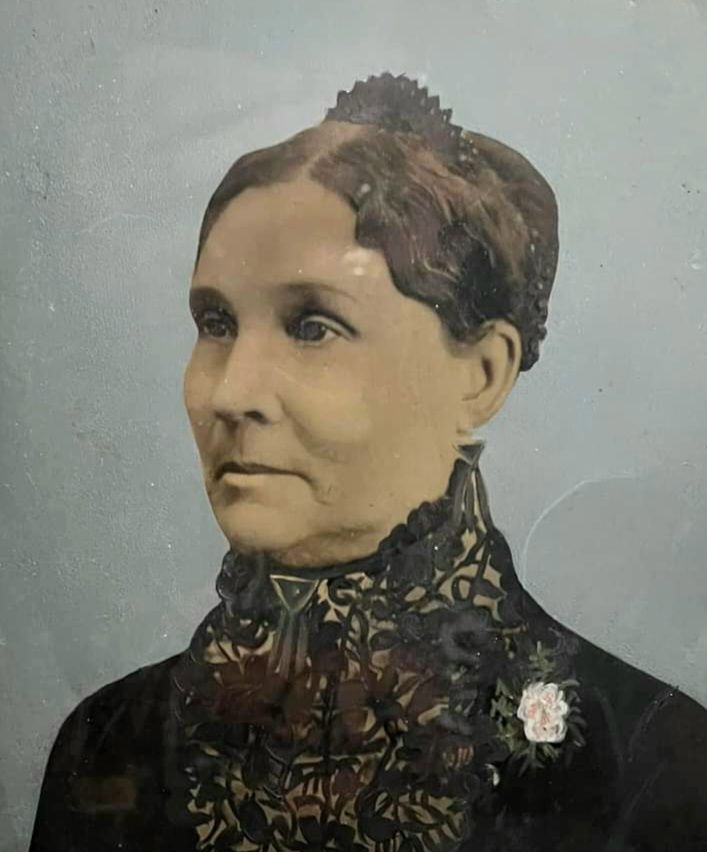From Hospital Nun to North Country Physician: The Unsung Legacy of Laurentine Rouchel

Immigrants, whether exiles or adventurers, possess a willingness to embrace the unknown. Jeanne Laurentine Rouchel, transported as a child from Lorraine, France to Croghan, ventured into unpredictable arenas early and often. She epitomizes how the strength of one’s commitment to others’ well-being can embolden a teenage girl from a foreign land to become a compelling figure not only in her adopted country, but in alien countries and for future generations.
Trailblazers always leave traces. Tucked among the tragedies and minutiae that crowd a page of the April 26, 1922 edition of the Watertown Daily Times, the obituary of a powerful and quietly influential woman emerges. While she was disarming prejudice and tirelessly combating societal ills, Laurentine’s perseverance and resilience compelled her to break with tradition as she strove to create a world the better for having her in it.
Born on Oct. 9, 1845, Laurentine was 9 years old when her parents, John and Mary Rouchel, in 1855 emigrated to French Settlement in Lewis County — as Croghan then was known — where they nurtured her curiosity and intellectual prowess. Perhaps settling in that rural pioneer community of Catholics and Mennonites from Europe’s Alsace-Lorraine region spared the family the virulence of the burgeoning anti-immigrant Nativist movement in America, whose hostility most vigorously targeted Irish Catholics but extended to other Catholic groups as well. Laurentine was educated primarily at home and at Lowville Academy. Her Catholic faith led her as a fifteen-year-old to relocate to Utica, one of the largest cities in the country at that time, then prominent in the textile manufacturing industry, and since the 1850s, a hub on the Underground Railroad from the Southern Tier to Canada.
There Laurentine in 1861 entered the novitiate of the Order of St. Francis, taking the name Sister Clementine and teaching in the St. Joseph Church parish school on Columbia Street. Relocating to Syracuse, she taught at the Church of the Assumption parish school and later instructed young novitiates at the convent of St. Anthony. On her return to Utica, she transitioned from teaching to nursing at Utica’s first private healthcare facility, St. Elizabeth’s Hospital and Home. A Roman Catholic hospital without an endowment, it served Catholics and non-Catholics alike.
While serving there for more than nine years, Sister Clementine’s energy and problem-solving skills saw her steadily advance in responsibility. Fully aware of the need for hospital services, she engaged in energetic fundraising, tapping those she knew were able to afford some charity. Her persistence, despite frequent rebuffs, paid off and she managed to raise thousands of dollars for the hospital. But her ceaseless work came at a cost. Sick with exhaustion but not wishing to burden the Franciscan order with her recovery, Laurentine returned alone to Croghan to try to regain her strength and to care for her ailing mother as well.
Still not fully recovered, Laurentine, encouraged by her former medical colleagues in upstate New York, seized yet another opportunity to serve others, entering University of Buffalo Medical School in 1879 and graduating in 1881 at the age of 35. In September of that year, she began practicing medicine in Albany, where she was one of the city’s first female physicians, continuing her charitable commitments in connection with the Open Door Mission and the Albany Hospital for the Incurables. Upon her return to Croghan, she continued to practice medicine.
By 1893, Laurentine had lost her mother. She began to limit her time as a traveling physician and focused on diseases and injuries of the eye, even expertly treating one Henry Campany who had suffered gruesome lacerations from an ice pick. In 1899, persuaded by the urgent needs of the sick and poor in India, she once again transplanted herself, this time for over a year to Lahore as a Catholic medical missionary working in a dispensary and urban orphanages.
Indefatigable, Laurentine persisted in charitable works both as a member of the Franciscan order for seventeen years and as a layperson. While she may appear to have been a paradigm of the single-minded humanitarian, she also enjoyed a rich life of musical performances, languages, deep and enduring friendships, and an unwavering commitment to opening the doors for other women to follow.
She led Croghan’s Woman’s Suffrage Campaign Club as a founding member and its treasurer, presenting and reviewing philosophical and historical essays advocating for women’s equality. Her activism contributed to the State of New York’s granting women’s suffrage in 1917, and later, to the passage of the 19th Amendment in 1920 that guaranteed American women the right to vote.
Vigilant and assertive through the end of her life, she ensured that her estate would bequeath largesse among Catholic societies, churches, schools, hospitals, and orphanages. Her commitment to social justice included bequests to remedy inequities, even in perpetuity. Not only did she set aside funds for Catholic priests serving African Americans in the South, she also established a trust with the Archdiocese of New York to exclusively support female physicians who would serve as medical missionaries to India.
When Laurentine Rouchel died on April 24, 1922, she was one of the best-known women physicians in Northern New York. Although Dr. Rouchel’s name has not endured here, her trailblazing adventurousness, ravenous curiosity, and boundless compassion are her unspoken, yet sustaining, legacy.
Explore More Posts
Categories
- Goings On (5)
- Objects & Artifacts (2)
- People (9)
- Places (5)
- Preservation (2)
- Uncategorized (15)
